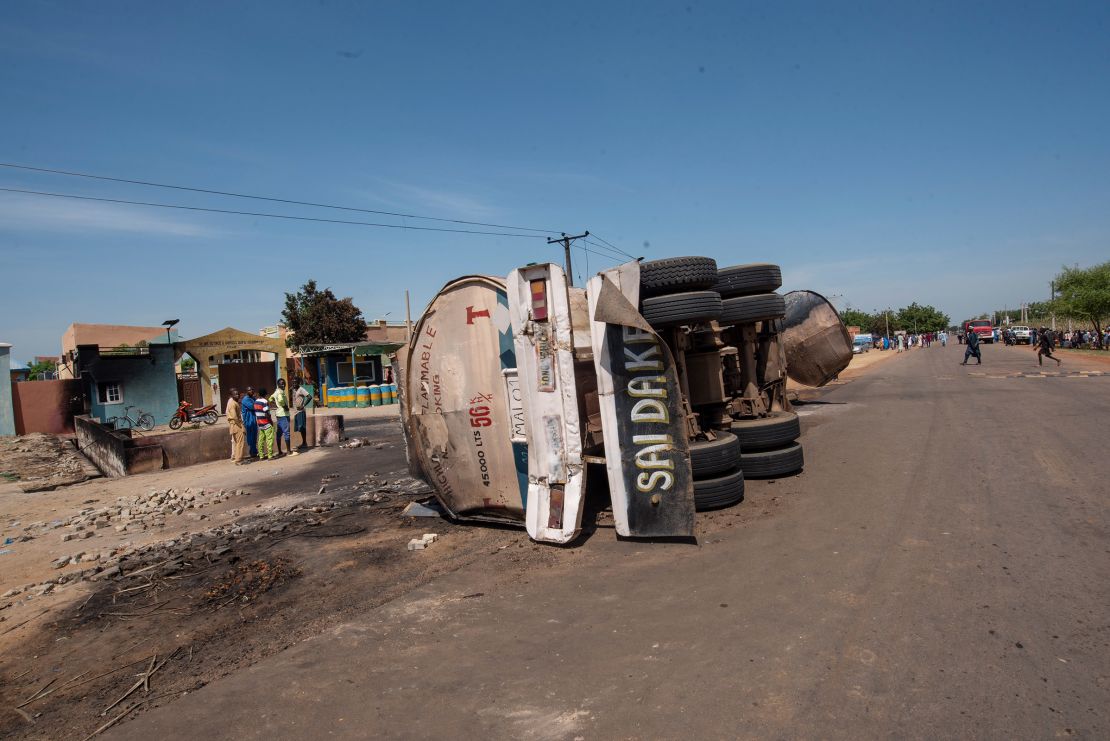The death toll from a fuel tanker explosion in northern Nigeria has risen to at least 153, with another 100 people injured, police told CNN Thursday.
The blast, which happened late evening local time on Tuesday in Majiya, a village in Jigawa state, came after the vehicle crashed and while locals were attempting to retrieve the fuel.
“The driver lost control and the tanker somersaulted and spilled fuel into a drainage ditch,” Jigawa police spokesperson Shiisu Lawan Adam said.
“As a result, residents rushed to scoop the fuel when the explosion happened.”
A mass burial was held on Wednesday afternoon for some of the victims, Adam said.

The death toll rose steadily since news of the deadly explosion broke.
“People are feeling very sad,” said Umar Majia, a member of the community whose 12-year-old nephew was killed in the blast.
“This type of incident has never happened in the community. It is the worst tragedy so far,” he told CNN.
Nigeria’s Vice President Kashim Shettima mourned the victims in a statement Wednesday, saying: “My heart aches for those who have had their families torn apart by this disaster.
“This devastating incident has shaken us all to our core. The Federal Government stands with the people of Jigawa. We are mobilising all necessary resources to support the injured and assist the families affected by this calamity.”
Shettima also announced “immediate federal government intervention and called for a comprehensive review of fuel transportation safety protocols.”
The blast comes a month after at least 48 people were killed in a similar accident in the north-central Niger state.
Fuel tanker explosions are not unusual in Africa’s most populous country, where oil supplies are frequently dispatched by road.
Previous fires have led to multiple casualties. In 2020, more than 500 people lost their lives in more than 1,500 fuel tanker accidents recorded that year, according to Nigeria’s road safety agency.
Residents, beleaguered by soaring living costs in the West African nation - where gasoline is scarce and expensive - often brave danger to scoop fuel from fallen tankers or damaged oil pipelines.
Gas prices have risen dramatically to more than six times their usual rate since the government ended fuel subsidies last year.
Poverty remains rife in Nigeria despite its status as one of Africa’s largest oil producers.





